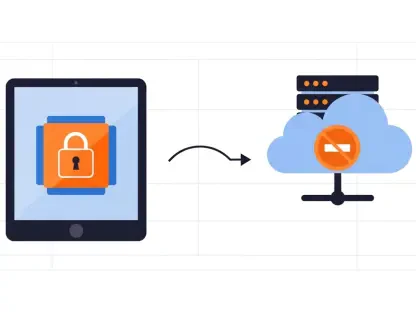In a startling revelation by cybersecurity analysts, a significant security flaw has been identified in some Linux distributions. This vulnerability threatens even devices equipped with full disk encryption, potentially granting attackers complete system access. Distributions like Ubuntu 25.04 and Fedora 42 are affected, while OpenSUSE Tumbleweed users can breathe easy, as they are currently not at risk. The flaw leverages a scenario in which an individual with physical access to a computer repeatedly inputs incorrect decryption passwords. This action inadvertently triggers a debug shell. Intended as a helpful tool for legitimate users, the debug shell can, unfortunately, be harnessed by malicious parties. Once accessed, the attacker can introduce a USB containing tools to modify the system’s initramfs. This adjustment to the system’s vital boot component, which is notably unsigned, bypasses standard security protocols. Consequently, when the system is booted again with the correct password, the malicious code activates, potentially facilitating unauthorized data extraction or remote system access.
The Complexity of the “Evil Maid” Attack Scenario
While the implications of this vulnerability are undoubtedly concerning, the execution demands a specific set of conditions that might limit its practicality. Often referred to as the “evil maid” attack, such instances necessitate actual physical access to the target device. This requirement makes it less of a threat to the average user and more relevant to high-profile individuals or sensitive organizations. For those aiming to exploit this vulnerability, the preparation is intricate. Attackers must have advance knowledge: preparing the necessary tools and scripts on a USB device before even approaching the target. This specificity and premeditation make it impractical for spur-of-the-moment or opportunistic attacks. Given the prerequisites and potential impact, users and system administrators alike are advised to prioritize security enhancements. A proven preventive measure involves modifying kernel settings, thereby disabling the debug shell trigger. Instead of appearing after password failures, a simple but powerful setting causes the system to reboot, effectively nullifying this attack vector. Proactively addressing such weaknesses emphasizes the ongoing efforts required to maintain robust security in Linux environments.
The Importance of Proactive Security Measures
Given the persistent and evolving nature of cybersecurity threats, this vulnerability underscores a broader lesson for all stakeholders. While features like secure boot and disk encryption are seen as foundational security measures, their benefits might be compromised if overlooked elements like initramfs are not rigorously protected. As this case illustrates, even the most advanced security mechanisms can falter if integral components remain unchecked and open to manipulation. The broader challenge for technologists and users alike lies in maintaining a vigilant approach to system security. Regularly revisiting and reassessing current security settings ensures that glaring loopholes, no matter how technical, are swiftly addressed. This vulnerability serves as a clarion call to continuously adapt, innovate, and strengthen defensive capabilities against ever-evolving threats. For system administrators, a critical action item is ensuring that all aspects of their systems, particularly unsigned components, are scrutinized and protected against unauthorized modifications. This approach isn’t merely reactive—it’s a proactive commitment to thwart potential attackers, preserving data integrity in ever-changing digital landscapes.
The Road Ahead: New Avenues for Enhancing Security
Cybersecurity analysts have uncovered a potentially dangerous security flaw in several Linux distributions that could impact devices with full disk encryption. This vulnerability might give attackers full system access. Affected distributions include Ubuntu 25.04 and Fedora 42, while OpenSUSE Tumbleweed remains unaffected. The flaw surfaces when a person with physical access inputs incorrect decryption passwords repeatedly. This error prompts a debug shell, meant to assist legitimate users but exploitable by attackers. Once the debug shell is accessed, attackers can use a USB to tamper with the system’s initramfs, the unsigned critical boot component. This bypasses standard security measures. When the system is rebooted with the correct password, the inserted malicious code can activate, potentially allowing unauthorized access to data or remote system control. This discovery accentuates the need for enhanced physical security and vigilant monitoring of update patches within affected systems to mitigate risks of such exploits.









